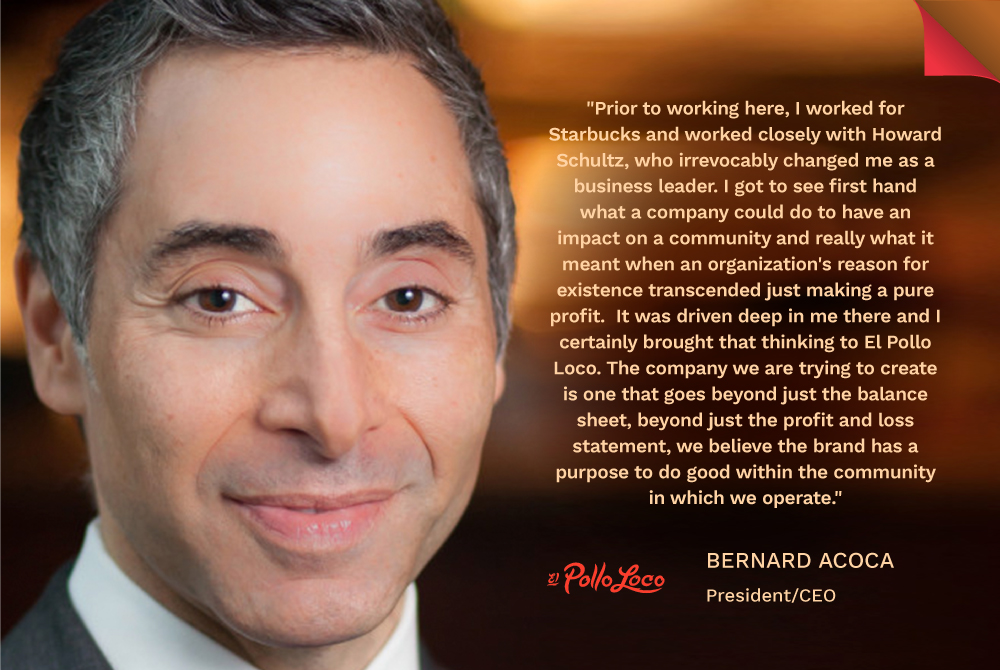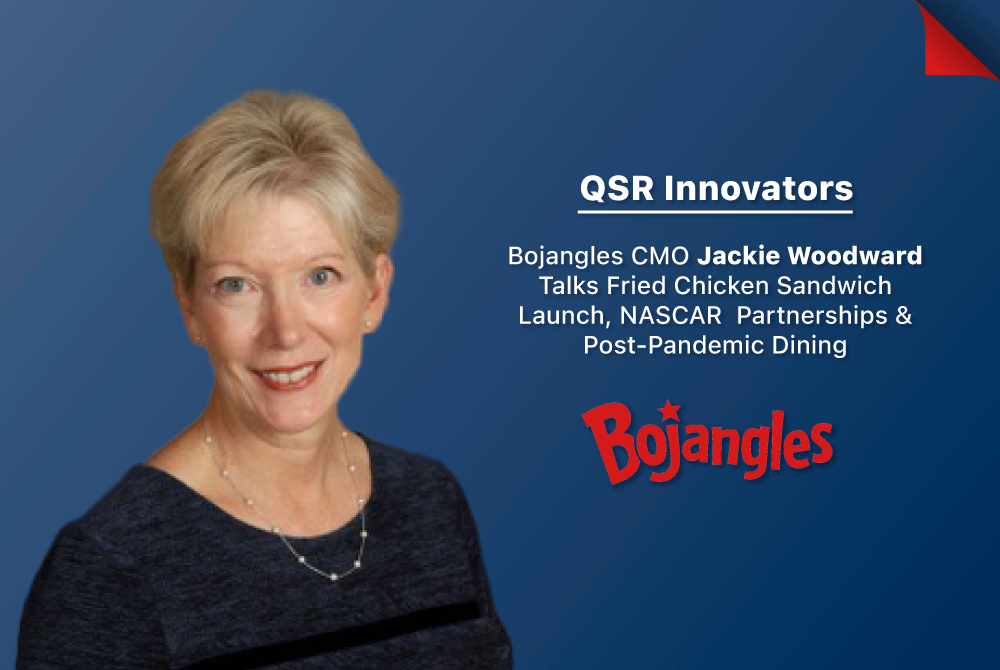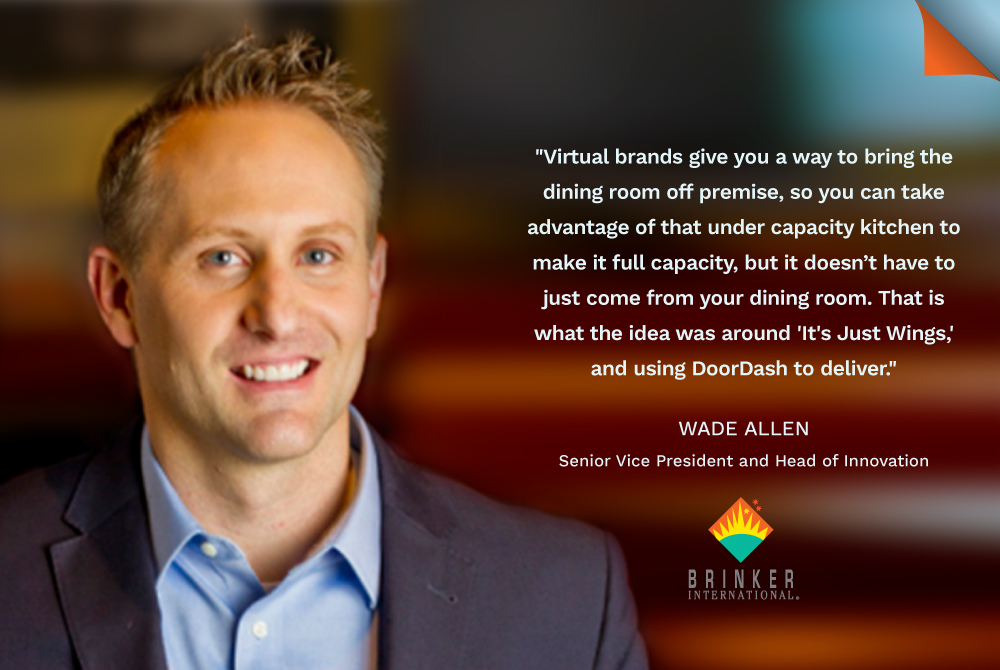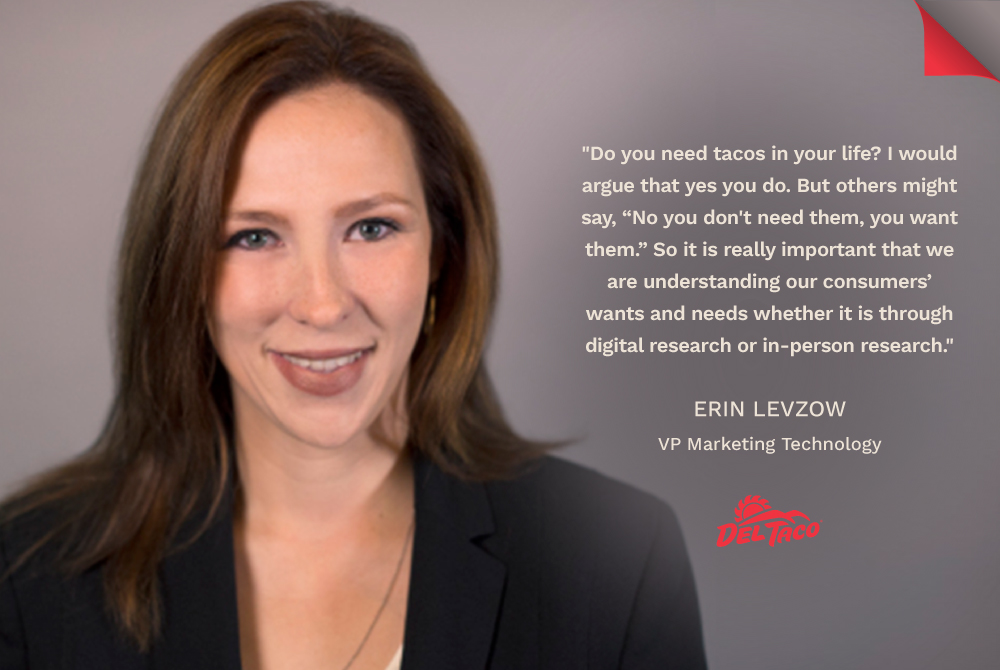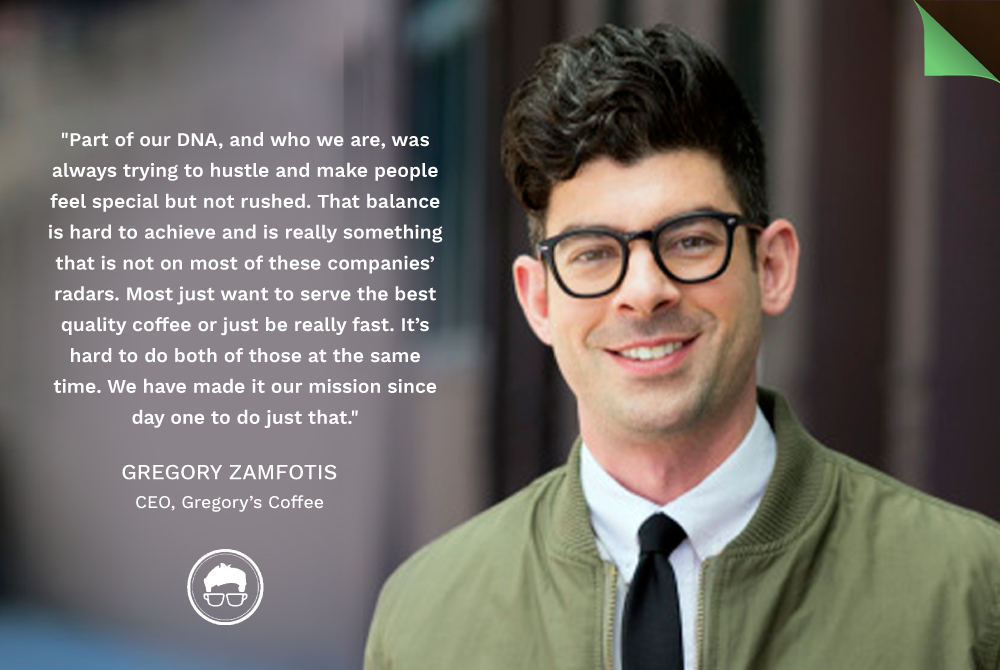Costa Mesa, CA-based quick service chain El Pollo Loco has been transforming its strategy since March 2018 when Bernard Acoca, a seven-year Starbucks veteran, joined as President/CEO.
Under his leadership, the QSR company has been focused on a transformation agenda which includes several pillars – investing in a “people-first” culture, differentiating the brand and simplifying the operations to make it easier to be an employee and a franchisee.
“Inherent in that transformation agenda is a real commitment to digitize our business and create a seamless experience for our customers whether it be shopping with us in our physical restaurants or ordering and accessing us in the virtual digital world,” said Acoca. “When the pandemic hit, we didn’t have to invent out of thin air what we needed to do or who we needed to become, we simply doubled down on certain aspects of the transformation agenda that were already in place.”
The brand recently revamped its app and is testing a new curbside pickup service. Beyond digital innovation, the fast food brand is also focused on purpose-based marketing.
Another key element of Acoca’s agenda is giving back to the community through different service initiatives. The company has been celebrating National Hispanic Heritage Month –September 15-October 15– with a program that aims to lift up Hispanic-owned small businesses in the Los Angeles area that have faced issues during the pandemic. The company has committed $100,000 in grants to 10 businesses and is encouraging the community at large to donate as well.
Brand Innovators caught up with Acoca to talk about the brand’s Hispanic Heritage month promotion and how it is using its digital channels to help do good in the community.
How did the Hispanic Hertiage month program come about?
We typically every year do something for hispanic heritage month because it is such a part of the DNA of our company. Our company was founded in 1975 in a small town in Sinaloa, Mexico called Guasave. Our founder brought the company stateside to Los Angeles in 1980. Eighty percent of our employees at the restaurant level and the support center are Hispanic and 50% of the customers that visit us every day are Hispanic, so our ties to the Hispanic community run deep.
Normally we would do something around Hispanic Heritage month that tends to be a bit celebratory. For instance, last year we as corporate citizens of Los Angeles, the mural capital of the world, many of which are painted by Hispanic artists, many of these murals were disappearing due to gentrification. So using a Snap AR filter, we worked with the LA Mural Conservancy to recreate these lost and ionic murals come back to life virtually. So you could hold up this AR filter on your phone to where those murals once stood and have them recreated before your eyes.
Then we took it one step further by commissioning a Latino or a Latina muralist working with the LA Mural Conservancy to use our storefronts as the new canvases for these murals. As a brand we have been very committed to honoring our heritage.
How did you decide on the program for this year?
This year we decided not to be as celebratory as in years past, because we thought it was a moment of reflection but more importantly, a moment of action. What we noticed in the community was that every small business was suffering, but if you took a look at the Hispanic community in particular, they were disproportionately impacted by the pandemic. Two thirds of Latinx businesses were saying that they were probably going to run out of cash within six months and would have to cease operations.
Another 46% of Latina owned businesses said they could run out of cash within three months. We knew we had to do something, we couldn’t let that stand. So we partnered with a wonderful organization called We All Grow Latina, an organization that works with Latina small businesses and serves as a tastemaker, curating certain Latina community groups and Latina-based businesses. We worked with them to create the first-of-its-kind Latina-owned business directory that concentrates on food businesses, which is close to us.
We set up a program called El Pollo Loco Grants where we are going to award 10 Latina-owned small businesses $10,000 to help get them through the pandemic and also offer one-one-one mentorship opportunities with the leadership team of our organization. The directory enables people in the community to locate a Latina small owned business so that they can patronize that business and shop that business.
And then we got the community involved in helping to raise funds. El Pollo Loco committed the first $100,000 in grants, but we invited the community to join us in this movement and set up a GoFundMe page. For every $10,000 we raise, we can save one more Latina-run business. To date we have raised almost $130,000 and we are committed to raising a lot more.
How are you marketing the GoFundMe page?
We are trying to use our scale for good. We are committed our media dollars and our social media channels to raise awareness to this effort. If you go to our Instagram page, you will not only see our organic posts but we have put our paid media dollars behind it. Our YouTube page features a beautiful video we shot telling the individual stories of a handful of Latina-owned small businesses.
We have been able to solicit the support of Univision and Telemundo to help tell our story in partnership with them. We also ran a few ads in the Los Angeles Times – one was a half page, one was a full page – to enlist the support of the LA community. We have been really leveraging our media dollars to build awareness to the program and we have had a great response thus far.
How does this kind of purposed-based marketing campaign help you connect with your consumers?
Prior to working here, I worked for Starbucks and worked closely with Howard Schultz, who irrevocably changed me as a business leader. I got to see first hand what a company could do to have an impact on a community and really what it meant when an organization’s reason for existence transcended just making a pure profit. It was driven deep in me there and I certainly brought that thinking to El Pollo Loco. The company we are trying to create is one that goes beyond just the balance sheet, beyond just the profit and loss statement, we believe the brand has a purpose to do good within the community in which we operate.
Which is why we have done things, for instance, like commit our restaurants to helping homeless shelters and food banks within the communities in which we operate. A little over a year ago, we used to throw away the food that was left at the end of the night. Now, what we are doing in many of our restaurants, is repackaging that food and working with an organization called the Food Donation Connection. Food that we once threw away, we are now donating at the end of the evening.
On Casear Chavez Day in 2019, we conducted the largest community service day in our company history. The day is a symbolic day for us, because it has come to stand for as a day to give back to the community, the ideals that Caesar Chavez stood for. We got together 500 people strong in Los Angeles. We invited our customers and franchisees to join us, paying our general managers on that day and our support center staff to go out and give back to the community. In other cities we had our restaurant teams feed homeless shelters and women’s shelters and committed our time that way.
Naturally, we are in business to make money and make a profit but our responsibility goes so far above and beyond that. We, as good corportate citizens, have a role to play in our communities, especially what we are seeing now, because government itself cannot fill that void alone. We as good corporate citizens need to fill that void and encourage private citizens to join in and help, as well.
How did you choose the businesses that will be the beneficiaries of your support?
We try to really include the community in that process. Through our partnership with We All Grow Latina, we encouraged people in the community to nominate Latina-owned small businesses of their choosing by using the hashtag #FundLatinaFoodJefas. We got inundated with so many candidates to receive this grant. We just recently culled through this very very long list based on submissions to ten finalists.
It was a very tough decision. We wanted to ensure that this program did not end at the end of National Hispanic Heritage month on October 15th. So several of the businesses that were selected, were businesses that could potentially sell their products in our restaurants, where we could make them part of our supply chain and use our scale for good to serve as a new customer and a new outlet for these businesses. Not only will the $10,000 grant go to shore up their finances, but now we can use our restaurant system to serve as an outlet where they can sell their products.
